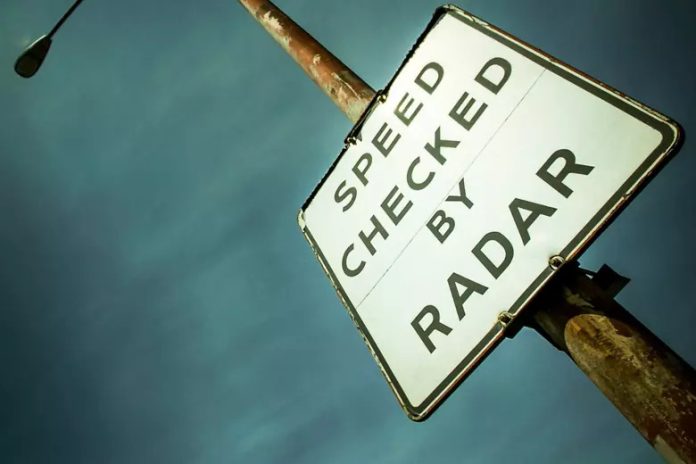Law Officers Ready to Begin Probationary, Ticket Process
Rick Langenberg
The days of a speeding raceway in Green Mountain Falls and the lower Ute Pass may be screeching to a halt, with a probationary ticket and education period ready to kick off in full vigor.
Only instead of getting pulled over by a law enforcement officer, offenders will get tickets, based on the roving eyes of a sophisticated, automated camera system, now used in many communities
But fret not, the initial tickets will serve as warning citations during an initial probationary period, expected to last at least 30 days.
Then, the real fun starts, with local speeders facing a big dent in their wallet, unless they slow it down when traveling through town in GMF. But again, locals will receive a certain level of reprieve and can only get hit with one speeding violation per week.
“Hopefully, we are not going to be giving out any tickets,” said Green Mountain Fall Marshal Sean Goings, at the Oct. 7 GMF Board of Trustees meeting. Similar to an earlier GMF meeting in early September, the marshal cited the new camera system as a way to curb a growing problem associated with speeding in the small mountain community, and not as a tool to generate more revenue.
The worst offenders, based on recent studies, are those traveling down Hwy. 24, near the GMF highway exits, with reports indicating a huge volume of motorists traveling at least 10 miles over the posted speed limit, and even faster.
The marshal last week unveiled more updated speed studies that had trustees raising a few eyebrows again, with a report of one motorist traveling close to 100 miles per hour. The latest study tracked close to 200,000 vehicles over a defined period, with at least 40,000 cars and trucks exceeding the limit by a hefty amount.
Goings informed the trustees at last week’s regular meeting that the equipment is ready to be implemented within the town limits of Green Mountain Falls. It will initially consist of one camera, installed on a trailer, stationed at various locations throughout the downtown corridor.
But at least at the outset of the program, no cameras or devices are slated for Hwy. 24. But this could change in upcoming months, once approvals are done with the Colorado Department of Transportation.
The trustees are supportive of the new program, introduced by the Louisiana-based Meta Traffic company, which will be responsible for sending out the tickets and collecting the fines. The elected leaders see this as a good way to achieve a needed level of more public safety, without turning the town into a “speed trap.” Meta representatives, in an earlier presentation cited the advantage of the equipment serving as a public safety vehicle for law officers and residents.
The images of the actual violations will be reviewed by the marshal’s office, prior to Meta sending them out to the respective speeding and traffic violators.
This type of equipment had its genesis in Colorado with the passage of a law in 2023, allowing the use of sophisticated cameras for issuing traffic citations. The law change was done partially to assure officer and motorist safety.
Stories have abounded regarding physical confrontations and even fatal deaths that occur during the issuing of traffic citations across the country by law officers. Goings conceded that he has experienced physical confrontations himself over a simple traffic citation.
At last week’s meeting, a few concerns were raised about getting the message across to residents regarding the new anti-speeding program. The trustees wanted to make sure that residents realized that the citations they receive during the kick-off period consist of warnings-only.
Trustee Brandy Moralez specifically asked about the town’s messaging efforts in implementing this program. She wanted to see a multi-media campaign that uses social media and local news outlets and even inquired about a posting at the local post office.
Goings, though, assured the trustees that the program has received much attention already, via articles in the local media and through public postings. The marshal estimated that he talks on a daily basis with 7 to 10 residents or concerned citizens regarding this program and how it will be enforced.





